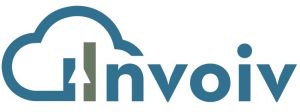In the digital age, selecting the right accounting software is crucial for the success of your small business. The software you choose can streamline financial processes, save time, and provide valuable insights into your company’s financial health. However, with so many options available, finding the perfect fit can be overwhelming.
Here’s a Guide to Help You Choose the Best Accounting Software
1. Assess Your Business Needs
Before diving into the myriad of accounting software options, take time to assess your business needs. Consider factors such as the size of your business, the complexity of your financial transactions, and your budget. Are you primarily looking for basic bookkeeping features, or do you need advanced capabilities like inventory management and payroll processing?
2. Define Your Budget
Budget constraints are a significant factor for small businesses. Accounting software can range from free versions with basic functionalities to premium suites offering comprehensive features. Determine how much you’re willing to invest in accounting software and consider the long-term benefits versus immediate costs.
3. Consider Ease of Use
For many small business owners, ease of use is paramount. Look for accounting software with a user-friendly interface and intuitive navigation. Consider whether you or your team will need extensive training to use the software effectively, and factor in any additional costs associated with training.
4. Compatibility and Integration
Ensure that the accounting software you choose is compatible with your existing systems and integrates seamlessly with other tools you use, such as CRM software or e-commerce platforms. Integration capabilities can simplify data transfer and reduce the likelihood of errors.
5. Security Features
Protecting your financial data should be a top priority. Choose accounting software that offers robust security features such as data encryption, secure backups, and user permissions. Verify that the software complies with industry standards and regulations to avoid potential legal issues.
6. Scalability
While your current business needs are crucial, consider the future growth of your company. Choose accounting software that can scale with your business, accommodating increased transaction volumes, additional users, and expanded features as your operations grow.
7. Customer Support and Reviews
Reliable customer support can make a significant difference when you encounter technical issues or need assistance with the software. Research customer reviews and testimonials to gauge the level of support the software vendor provides. Opt for a provider with a reputation for responsive customer service.
8. Trial Period and Demo
Before making a final decision, take advantage of free trials or demos offered by accounting software providers. This hands-on experience will allow you to test the software’s features, evaluate its usability, and assess whether it meets your business requirements.
Choosing the right accounting software is a pivotal decision for small business owners. By assessing your needs, defining your budget, prioritizing ease of use and security, considering scalability, and evaluating customer support, you can make an informed choice that enhances your financial management capabilities and supports the growth of your business.
Frequently Asked Questions
Assess your business needs, such as the size of your business, the complexity of financial transactions, and your budget. Determine if you need basic bookkeeping features or more advanced capabilities like inventory management and payroll processing.
Accounting software ranges from free versions to premium suites. Decide how much you’re willing to invest and weigh the long-term benefits against the immediate costs to find the best fit for your budget.
A user-friendly interface is crucial for effective use, especially if you or your team will need to learn the software. Consider whether training will be required and any associated costs.
Ensure that the software integrates seamlessly with your current systems, such as CRM software or e-commerce platforms. Integration capabilities help streamline data transfer and reduce errors.
Choose software with strong security measures, including data encryption, secure backups, and user permissions. Ensure it complies with industry standards to protect your financial data.
This blog post is for informational purposes only and should not be considered tax advice. Always consult with a qualified tax professional or financial advisor before making any decisions based on the information provided. Your individual circumstances may vary, and a professional can help you navigate your specific situation.
